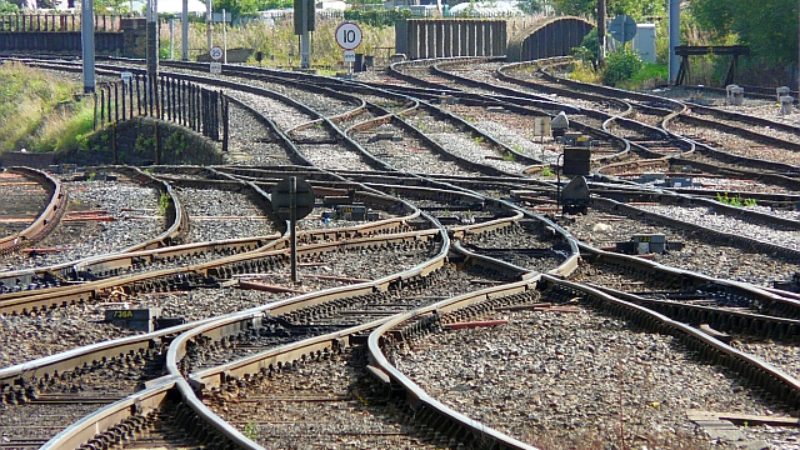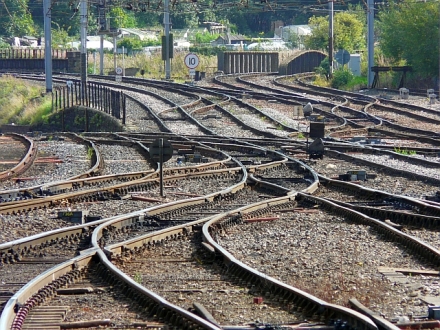

Promising to renationalise the railways certainly accords with popular feeling since poll after poll has suggested that around three quarters of the population supports the idea of a publicly owned railway. However, Jeremy Corbyn would be wise not to overpromise on the benefits of renationalisation and to be very clear about precisely what it means.
I have long argued that the privatisation of the railways was a great calumny thrust on Britain’s people by a Tory government that had run out of things to sell off and put the idea in the manifesto for an election that it had not expected to win (sounds familiar, doesn’t it, as the sale of housing association homes by the current government is a similar scenario). The result was, quite literally, disastrous, resulting in a series of accidents (as set out in my book On the Wrong Line, how ideology and incompetence wrecked Britain’s railways). The safety flaws have been resolved, at a cost of several billion pounds, but the other problems with the privatised system remain. It is expensive, cumbersome, inflexible and, in a business expression overused within the industry, ‘not fit for purpose’.
However, renationalising the industry is not a panacea for the problems created by the sell-off two decades ago and, moreover, the complexities of bringing it about will mean that it will take a long time for Labour policies to have much effect even a 2020 victory.
British Rail was broken up into around 100 constituent parts and many of the smaller businesses have either long disappeared or are no longer relevant. That leaves three key major components of the industry – the track and infrastructure, the rolling stock and the services. It is, really only the latter which is possible to renationalise and even that presents difficulties.
The track and infrastructure is in the hands of Network Rail which in the autumn of 2014 became a government owned company. It has, in other words, already been renationalised. The rolling stock is mostly in the hands of three Rolling Stock Companies (Roscos) which are in effect really tax-efficient investment vehicles. When he was transport secretary, Douglas Alexander took a particular dislike to them – understandable since they were sold far too cheaply – but after a lengthy and expensive investigation, found that there was nothing much that could be done about them. Therefore, the stock will remain privately owned, though new deals could be undertaken directly by public bodies, as is happening with both the new trains for both Crossrail and Merseyrail.
That leaves the franchises. These are mostly on seven year deals and several are due to be signed off in the next couple of years, which means they will not run out until the midterm of the next government. There is, contrary to the view of some commentators who argue wrongly that European legislation is a barrier, no reason why the franchises could not be allowed to run out and taken back ‘in house’ as happened to the East Coast franchise in 2009. They could then be brought together and run by a government owned organisation which, for nostalgia’s sake, could be called British Rail. But it would not be the same thing, an organisation that owned and ran all Britain’s railways. It could be merged in Network Rail, creating a body with considerable control over the industry but it still would be nothing like the old BR.
Nevertheless, despite these difficulties, it is right for Labour to continue talking about reforming the railways and increasing the role of public ownership. It is both a popular policy and sensible. Total renationalisation of all the services could remain as an overall aim but it will take a long time to bring about. In the short term, letting the franchises run out would lead to considerable savings, though I suspect the £1bn figure is optimistic. Therefore it could result in some fares being held steady but reductions would be unlikely since this would require extra subsidy which is unlikely to be forthcoming given the other demands on the public purse after a decade or more of austerity.
There is no doubt renationalisation would lead to a more flexible industry that could be tailored to wider transport policies around sustainability and better integration. However, promises of massive fare reductions will be difficult to keep as will commitments to much greater investment since this is pretty much at record levels already and Network Rail is already struggling to cope with the programme.
However, if Labour is seeking a pot of money that could be used on improving the existing network or building urban tram schemes, how about withdrawing from supporting HS2, the country’s second most daft project after Trident?
Christian Wolmar is a transport expert and stood to be Labour’s London Mayor candidate




More from LabourList
Letters to the Editor – week ending 15th February 2026
‘Labour council candidates – it’s tough, but all is not lost’
‘Labour won’t stop the far right by changing leaders — only by proving what the left can deliver’